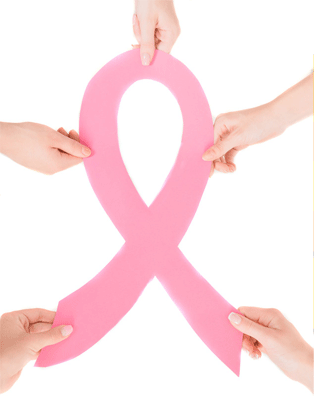Become a Pink Ribbon Breast Cancer Instructor
Train to become a certified Rehabilitatative Breast Cancer Exercise Specialist
Did you know that one in eight women in the western world will be diagnosed with Breast Cancer during their life-time. Many of these will undergo surgery, chemotherapy, Radiotherapy or a combination of all of these. Thereafter patients will often undergo complex reconstruction affecting more than one area of the body. Following treatment patients will often suffer long term loss of mobility and flexibility as well as associated knock-on effects caused by their surgery or ongoing side affects from hormone related therapy.
Many of these symptoms and issues are avoidable if the survivors undertake a focused rehabilitation programme to regain the range of movement and mobility that they were used to before their surgery.
The goal of this interactive two day course is to provide the participants with a knowledge base that is essential to the successful evaluation of the breast cancer survivor, from diagnosis to treatment, recovery, prevention of lymphedema and proper exercise guidelines and protocols.
This course is open to physio therapists, occupational therapists, Pilates instructors, Fitness Professionals with a GP Referral qualification, lymphedema treatment specialists, and oncology nurses.
Evidence based practice and integration of material from the areas of functional exercise, shoulder rehabilitation and Pilates exercises will be the emphasis of practical sessions.
Assessment
This workshop is assessed through a combination of Multiple Choice examination at the beginning of day two to assess the theory in day one and the content of the instructor manual (a 70% minimum score is required to pass) and formative assessment throughout day 2 to ensure competence in the teaching of the exercises in the Pink Ribbon course repertoire and the ability to adapt programming to show competence when dealing with a series of case studies outlined in the instructor manual.
Qualification and Accreditation
Breast Cancer Post Rehab Exercise Specialist (Mbodies Training Academy)
Course Objectives
At the end of this course:
You will be equipped with a toolbox that will be suitable for either group work (as favoured by charity funded schemes running in many UK hospitals) or for one on one work with clients preferring individual attention.
You will sufficiently understand Breast Cancer, its etiology and stages / types of treatment to be able to intelligently interact with your client(s) and set realistic expectations of how and when you can help them.
You will understand the value of meeting your clients pre-surgery and taking relevant measurements of the client's pre surgery range of movement, and anthropometric measurements - which will form the basis of your post rehab measurement and evaluation and also help you to set realistic goals.
You will understand the surgical effects of different types of reconstruction or surgery and this will allow you to hone in on muscle groups which will require attention and contraindicated exercises or movement patterns which should be avoided as a result of any specific intervention.
You will understand the client's 'journey' from removal of tumour, through reconstruction, if any, and adjuvent therapies such as Chemotherapy, Radiotherapy, Hormone Therapies etc. You will therefore understand the need to accommodate the psychological as well as physiological side effects of the treatments allowing you to set expectations appropriately and support your client through the stages.
You will be aware of the importance to know which of your clients is at greatest risk of co-morbitities such as Lymphodema and understand the signs and symptoms and be able to advise accordingly.
You will be able to deliver graded, appropriate and safe exercise Programmes which will not only help clients to recover Range of Movement, Mobility and Strength compromised by the surgical interventions, but also develop a client base loyal to you who by attending regular exercise will statistically live longer and have less chance of reoccurrence of Breast Cancer than those who do not.

